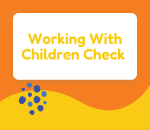Promoting Positive Behaviour in Preschoolers – A Guide for Parents and Educators
Promoting positive behaviour can involve strategies that can be helpful in the classroom and at home. Below are some suggestions that can assist both parents and educators. Show Respect for Children When discussing a child’s behaviour with them, ensure that the discussion occurs in private to minimise embarrassment in front of others—talking with the child…
Promoting positive behaviour can involve strategies that can be helpful in the classroom and at home. Below are some suggestions that can assist both parents and educators.
Show Respect for Children
When discussing a child’s behaviour with them, ensure that the discussion occurs in private to minimise embarrassment in front of others—talking with the child rather than at them is more effective and respectful. Look the child in the eyes and listen carefully to what they have to say, giving them an appropriate opportunity to respond.
Give Clear and Easy Choices
Giving children a choice appropriate for their age can be effective. When children have a choice, they can feel empowered and have an element of control over what they can do. This sense of ownership can boost their confidence, too.
Highlight Children Making the Right Choice
Attention given to a child for positive behaviour reinforces the positive choice that they have made. Aiming to provide positive feedback throughout the day and acknowledging it in front of others can further strengthen and celebrate the good decisions made.
Teach how to Resolve Conflict and Apologise
Helping children recognise their feelings and identify solutions to problems is critical for conflict resolution. Learning to apologise is a learnt skill, and by the time a child is 4 years old, they should understand that apologising can help resolve conflict or soothe another’s hurt feelings.
Use Play to Teach Social Skills
Role-modelling through Play is a wonderful way to teach appropriate social skills. Parents and educators can take on a role during imaginative Play and use this opportunity to demonstrate how to resolve problems or use manners, for example.
Correcting Behaviour
When a choice is made, the child needs to participate in the consequences. For example, if a child draws on the wall, give them a cloth to help clean up. Over time, they will understand the importance of self-control and the link between choices and consequences.
Take On a Coaching Role
A good coach celebrates successes, acknowledges efforts, and provides encouragement. This approach is the most effective way to foster positive behaviour in preschoolers.
Connecting Teams, Talent & Educators
Thank you for reading our latest blog. If you are a candidate, click to view our Permanent Jobs or explore our latest Temporary Opportunities.
If you are a client looking to find your next permanent or temporary staff member, Entrée Early Years can help. Hire or Book Early Childhood Staff today!
Reference







